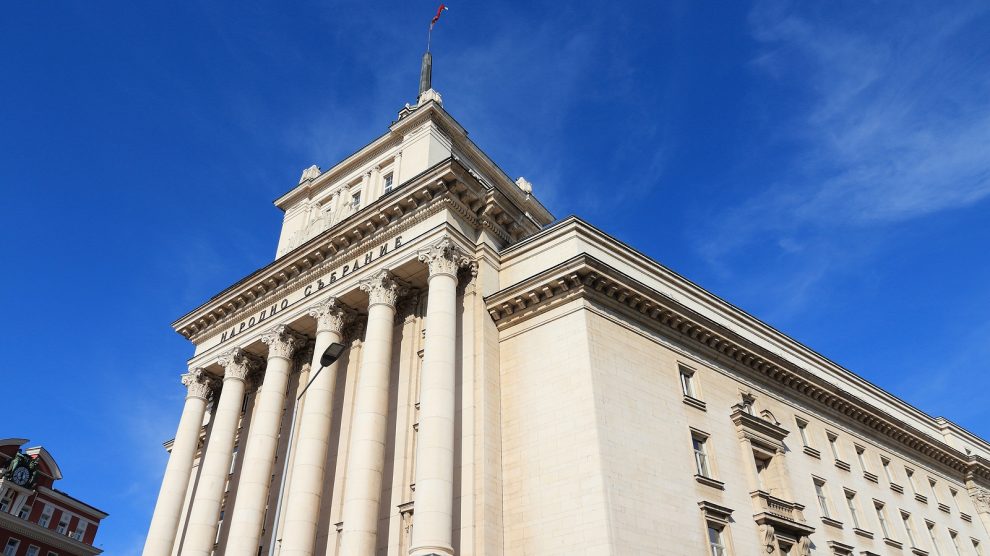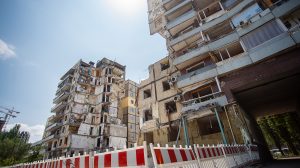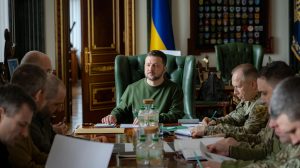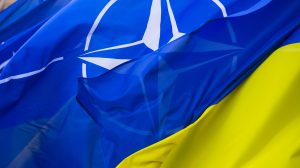Central Europe
Bulgaria’s largest political grouping gave up efforts to lead a minority government on Tuesday following a razor-thin victory in last month’s parliamentary election, increasing the prospect of new polls later this year. The anti-establishment There Is Such a People (ITN) party narrowly won the second 2021 election on July 11, bolstered by public anger against widespread corruption after over a decade of dominance by former centre-right premier Boyko Borissov. But with just 65 seats it needed the support of other smaller parties in the fractured chamber of 240 lawmakers, having declined cooperation with Borissov’s GERB or the ethnic Turkish MRF party. Yet it failed win the backing of its potential allies, two small anti-corruption parties, after refusing to sign a political agreement with them and proposing ministers which they saw as unfit to battle high-level graft in the European Union’s poorest member state.
Poland’s ruling right-wing coalition fell apart on Tuesday after Prime Minister Mateusz Morawiecki dismissed the head of a junior coalition party, putting the government’s future in doubt. “My dismissal is de facto a rupture of the governing coalition,” said Deputy Prime Minister Jarosław Gowin, head of the Agreement party. Gowin and his Agreement party have been increasingly at odds with the main partner in the United Right coalition, the populist Law and Justice (PiS) party, in recent months. But his departure does not mean that the government collapses automatically as there would need to be a formal vote of no confidence by parliament.
The following day, Poland’s parliament passed a new media bill that opponents say is an attempt to silence a TV channel critical of the government. The government says the law is needed to stop hostile foreign powers taking control of its broadcasters. But critics say it is an attempt to push US company Discovery to sell the country’s biggest TV network, TVN. The law threatens to sour relations with the US, a key ally, and deepen EU concern over media freedom in Poland. The government has argued that existing rules banning companies based outside the European Economic Area from directly owning broadcasters should be tightened to prevent Chinese and Russian firms from controlling Polish media outlets. However, the plans have been criticised by the US, which is an important military ally. The US company Discovery owns TVN through a subsidiary based in the Netherlands.
Romania’s Prime Minister Florin Cîțu admitted this week that he spent two days in jail in the US after he was caught driving under the influence two decades ago. The prime minister, a former banker, said he paid a 1,000 US dollars fine. He was questioned by reporters after a Romanian news website, flux24.ro, published a court document showing he had been incarcerated in Iowa in 2000 for operating a vehicle under the influence of alcohol or drugs. “It was a misdemeanour. I made a mistake,” the 49-year-old premier said on Wednesday. Marcel Ciolacu, the leader of the country’s largest opposition party, the PSD, on Thursday called for Cîțu’s “immediate” dismissal.
Hungarian Prime Minister Viktor Orbán has said he is “prepared” for outside “interference” including from the United States in an election next year that could see the nationalist premier’s removal. “That will happen, we are not worried about it, we are prepared for it,” Orbán said in an interview broadcast last Friday with US television host Tucker Carlson, who had asked him if he was “worried that there will be international interference” in the election. “Obviously the international left will do everything that they can do, probably even more, to change the government here in Hungary.” The vote expected in April 2022 is shaping up to be a tight race with opinion polls showing Orbán’s ruling right-wing Fidesz party neck-and-neck with a coalition of opposition parties from left to right.
Croatian media reported on Tuesday that the mayor of the Borovo municipality in eastern Croatia, Zoran Bacanovic, is under police investigation over his recent Facebook post about Operation Storm. Bacanovic, a member of the Independent Democratic Serbian party, which represents Croatia’s Serb minority, posted a photomontage with a picture of a column of Croatian Serb refugees fleeing the country after the operation and a picture of a crowd holding a banner with the message: “Storm – a crime that is still ongoing.” The message – since removed – was posted last week, when Croats celebrated the anniversary of their army’s victory over rebel Serbs in Operation Storm in August 1995, while Serbs commemorated their dead and remembered those who had to leave their homes.

—
Eastern Europe
Belarus on Wednesday rescinded its permission for the US ambassador’s appointment and told the US to cut its embassy staff in retaliation for Washington’s sanctions. President Joe Biden’s administration slapped Belarus with new sanctions Monday, the anniversary of last year’s election in Belarus that was denounced by the opposition as rigged. Authoritarian President Alexander Lukashenko responded to protests against his re-election to a sixth term with a sweeping crackdown that saw more than 35,000 people arrested and thousands beaten by police. The new US sanctions target Belarus’ giant potash producer that has been a top revenue earner for the country, the Belarusian National Olympic Committee and 15 private companies with ties to Belarusian authorities. Foreign Ministry spokesman Anatoly Glaz on Wednesday denounced the US action as “blatant and openly hostile” and announced the decision to rescind an earlier agreement for the appointment of Julie Fisher as the US ambassador to the country.
Ukraine has extended a state of emergency that allows regional authorities to impose COVID-19 restrictions for a further month until October 1 to tackle a surge in infections from the rapidly spreading Delta variant, the prime minister said on Wednesday. “Unfortunately, experts are beginning to register the first negative trends in terms of hospitalisation of those seriously ill, therefore the government is adopting a decree to extend the state of emergency and adaptive lockdown until October 1,” Premier Denys Shmygal said during a televised weekly cabinet meeting. The “adaptive lockdown” means regional authorities have the power to tighten or ease restrictions depending on the situation locally. The state of emergency had been due to expire at the end of August.
Russia and Moldova have agreed to lift trade restrictions and are ready for mutually beneficial ties, senior Kremlin official Dmitry Kozak said on Wednesday, Interfax news agency reported. Russia in 2013 banned imports of Moldovan wines and spirits, one of the ex-Soviet republic’s main export earners, in a move that was seen as retaliation for the small country’s drive to expand ties with the European Union. In late 2020, the Kremlin rebuffed calls by Moldova’s then-incoming president, Maia Sandu, for Russian troops to withdraw from the breakaway region of Transnistria, saying it would be seriously destabilising.
Armenia is committed to establishing a durable peace in the region but will not tolerate the occupation of its border areas by Azeri armed forces, Armenian Defence Minister Arshak Karapetyan said at a meeting with his Russian counterpart Sergei Shoigu in Moscow, Armenia’s Defence Ministry reported on Wednesday. Karapetyan noted that Yerevan was still committed to establishing peace in the region and continuing negotiations in this regard but would not tolerate the occupation of its border areas and would take all steps to restore territorial integrity. The situation on the Armenian-Azerbaijani border has been tense since May 12 when Armenia’s Defence Ministry reported that Azerbaijani forces had attempted to carry out “certain activities” in one of the Syunik border region’s districts to “adjust the border.” Both sides have been periodically reporting border incidents since then.
The body of a climber who fell to his death in the world’s deepest cave in Georgia will be recovered after it was found nine months after he disappeared. A team of up to 100 climbers are preparing to attempt the complex recovery from the Veryovkina Cave in the disputed Abkhazia region. The climber was named by local media as Sochi resident Sergei Kozeev, who went missing in November last year. Russian cavers notified Abkhazia’s Ministry of Emergency Situations after discovering Kozeev’s body on August 3. The Veryovkina Cave, located on the Gagra ridge in Abkhazia, is considered the deepest in the world. In 2018, during a regular expedition, Russian cavers descended to the level of 2,212 meters.
North East Europe
Latvia declared a state of emergency along its border on Tuesday and Lithuania decided to erect a fence in new measures to deter migrants they say Belarus is encouraging to cross illegally in order to pressure European states. Rising numbers of migrants have reached Lithuania, Latvia and Poland, which accuse Belarusian President Alexander Lukashenko of using the issue to press the EU to reverse sanctions. Poland says Belarus is retaliating against Warsaw’s decision this week to give refuge to Krystsina Tsimanouskaya, a Belarusian athlete who refused to return home from the Tokyo Olympics. Belarus in May decided to let migrants enter Lithuania in retaliation for EU sanctions imposed after Minsk forced a Ryanair flight to land on its soil and arrested a dissident blogger on board. Lukashenko said Belarus would not become a “holding site” for migrants from Africa and the Middle East.
Almost one third of Estonian startups – 348 out of 1,200 companies from Estonian Startup Database – have been founded by e-residents, according to recent analysis commissioned by Startup Estonia and the Estonian e-residency programme. Most of the start-ups focus on business software development and fintech solutions. The head of Startup Estonia, Eve Peeterson, says Estonia attracts international talent primarily thanks to its innovative digital society and its worldwide reputation as a thriving breeding ground for startups. “Our small but remarkably diverse startup sector has become an essential driver for innovation and economic growth in Estonia. Thanks to the e-residency programme, the Estonian startup community has been able to truly flourish and thrive,” Peeterson said in a statement.
South East Europe
Relations between Albania and Kosovo have hit a new low after a German official indicated Berlin’s support for the disputed regional Open Balkan project, which Kosovo staunchly opposes. North Macedonia’s Prime Minister Zoran Zaev, Albania’s Prime Minister Edi Rama and Serbia’s President Aleksandar Vučić met in Skopje last month to launch the initiative, pledging to scrap most border obstacles impeding travel and business between the three states by 2023. But Kosovo, Montenegro and Bosnia and Herzegovina have hesitated to join the initiative. On Wednesday, a German government spokesman told the Prishtina-based news portal Gazeta Express that Berlin believes that “any regional cooperation in Western Balkans is useful”.
The OSCE Mission to Bosnia and Herzegovina said in an information sheet published on Tuesday that only 18 war crimes cases were completed last year, compared to a total of 49 in 2019. It also said that at the end of 2020, “there remained a backlog of 571 unresolved cases involving 4,498 suspects”. War crimes trials were seriously disrupted by the coronavirus pandemic last year. Trials involving five or more defendants were put on hold by the Bosnian state court in Sarajevo in March 2020 because of safety measures imposed to curb the coronavirus pandemic, and only resumed this year. The OSCE on Tuesday also raised concern that the conviction rate in final verdicts in war crime trials last year “dropped to 52 per cent, getting close to the record low level from 2018, which was 51 per cent”. It said that at the end of 2020, there were 253 ongoing war crimes cases, but some of these have been stalled.
The referee of a football match in Serbia on Sunday evening between Novi Pazar FC and Belgrade club Partizan FC temporarily halted play because Partizan fans were chanting war criminal Ratko Mladić’s name and a slogan celebrating the 1995 mass killings of Bosniaks from Srebrenica. The match was being played in Novi Pazar in southern Serbia, a city mainly inhabited by people of Bosniak origin. Around the 60th minute, the Partizan fans started to chant Mladic’s name and “Noz, zica, Srebrenica” (“Knife, wire, Srebrenica”). The Novi Pazar players did not want to continue the game, but after a 38-minute halt, the match resumed after the Partizan fans were moved out of the stadium. There has been no public announcements of any arrests related to the incident.
Central Asia
Kyrgyzstan has established enough evidence to press on with removing Canada’s Centerra Gold from the Kumtor gold mine, the state security service and prosecutors said on Wednesday. The security service is investigating possible corruption in the deal that gave Centerra control over the country’s biggest gold mine and subsequent amendments to the pact. It said on Wednesday it has established enough facts to press ahead with annulling the deal. The government seized control over Kumtor in May in a move challenged by Centerra Gold through international arbitration.
Taliban fighters have taken control of Afghanistan’s borders with Tajikistan and Uzbekistan as they continue their rapid offensive, Russia’s defence minister has said. Sergei Shoigu told a youth conference in Moscow on Tuesday that the group’s leaders had promised not to attack neighbouring countries after making its territorial gains, Russia’s Tass news agency reported. He added that Russia would continue holding joint drills with its allies in the region. Russia operates a military base in Tajikistan and the former Soviet republic is a member of a Moscow-led military bloc, meaning that Moscow would be obliged to protect it in the event of invasion. Uzbekistan also has close ties with Russia.
Internet users in Turkmenistan say they are being forced to swear on the Koran that they will not use virtual private networks (VPNs). Several Internet users across the extremely isolated former Soviet republic told RFE/RL that they were instructed by the authorities to swear on the holy book of Muslims that they will never use VPNs after they applied for an Internet connection in their homes. VPNs are illegal in Turkmenistan but are widely used to circumvent government restrictions on the internet. “I waited for a year and a half after I filled all necessary documents and signed application forms asking to install WiFi in my home. Now they say I must swear on the Koran that I will not use a VPN, but nothing is accessible without VPNs. I do not know what to do,” an Internet user who introduced herself as Ainur told RFE/RL on August 9.
Kazakhstan underperformed at the Tokyo Olympics, and the president is not happy about it. With its haul of eight bronzes, Kazakhstan got more medals overall than did other Central Asian nations, although Uzbekistan ranked higher in the final table by virtue of its three golds. But Kazakhstan is also measuring itself by previous performances, and the comparison is not flattering. The Games at Rio de Janeiro in 2016 were a remarkable high point: The country’s athletes on that occasion bagged three gold medals, five silver and 10 bronze. President Kassym-Jomart Tokayev said on August 9 that the public was entitled to expect something similar this time around. “The final result of the national team – eight bronze medals and an 83rd position overall – does not reflect Kazakhstan’s sporting potential and the significant amount of money that the state has invested in the development of sports,” he wrote on Twitter.
Uzbek authorities said this week that Muslims in Central Asia’s most populous country will be able to gather at mosques for Friday Prayers on August 13 if they have been fully vaccinated or tested negative for Covid-19. According to the Health Ministry, only mosques where the clerics have been fully vaccinated against the disease will be allowed to open their doors to the public, and all persons willing to attend Friday Prayers must wear masks. Friday Prayers at mosques were suspended in Uzbekistan on July 20 as a new wave of coronavirus hit the country.
Unlike many news and information platforms, Emerging Europe is free to read, and always will be. There is no paywall here. We are independent, not affiliated with nor representing any political party or business organisation. We want the very best for emerging Europe, nothing more, nothing less. Your support will help us continue to spread the word about this amazing region.
You can contribute here. Thank you.








Add Comment